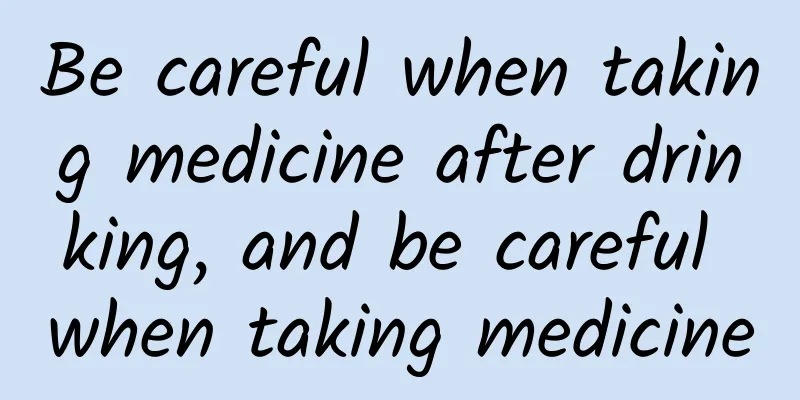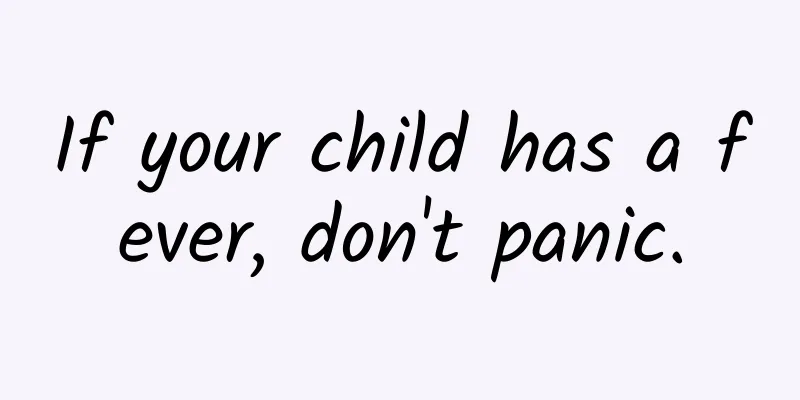Be careful when taking medicine after drinking, and be careful when taking medicine

Be careful when taking medicine after drinking, and be careful when taking medicineThe First Affiliated Hospital of Zhengzhou University Han Bing Sun Tongwen "Don't drink and drive, don't drive after drinking" is a well-known road safety slogan. Not driving after drinking has become a traffic behavior that people consciously abide by. Another common saying is "Cephalexin with alcohol, go away at any time", which describes that drinking after taking cephalosporins will cause life-threatening allergies or disulfiram-like reactions, which can be life-threatening in severe cases. As a doctor, I want to remind everyone that "be careful when taking medicine after drinking, and be careful when taking medicine." First, what is the disulfiram reaction? Disulfiram is a drug for alcohol withdrawal, also known as disulfiram, antivenom or anorexia. After using this drug, drinking alcohol will cause symptoms such as facial flushing, headache, dizziness, abdominal pain, nausea, vomiting, shortness of breath, increased heart rate, decreased blood pressure, drowsiness, hallucinations and even shock. The same symptoms as described above after patients use certain drugs and drink alcohol or use them in combination with drugs containing ethanol are called disulfiram-like reactions. Cephalosporins are the most common drugs that cause disulfiram-like reactions. The symptoms of disulfiram-like reactions often appear 15 to 30 minutes after drinking or when a solution containing ethanol is intravenously infused. The severity is proportional to the dosage of the drug and the amount of alcohol consumed, and it is persistent. For general disulfiram-like reactions, they will disappear on their own without treatment. In severe cases, if symptoms such as difficulty breathing, decreased blood pressure, and syncope occur, they should be sent to a doctor for emergency treatment immediately. The prognosis of disulfiram-like reactions is good, and the symptoms usually improve or basically disappear after a few hours of symptomatic treatment. However, in view of the irreversible inhibition of acetaldehyde dehydrogenase by disulfiram and drugs that cause disulfiram-like reactions, it is recommended not to drink alcohol or use ethanol-containing drugs within 1 week of discontinuing the above-mentioned drugs. In addition to cephalosporins, there are many drugs that can cause disulfiram-like reactions: metronidazole, tinidazole, ornidazole, etc. for treating tooth or oral infections, glibenclamide, glipizide, etc. for treating diabetes, nitrofurantoin, furazolidone, etc. for treating diarrhea, diphenhydramine and cyproheptadine contained in medicines for treating allergies or colds, and other antibacterial drugs such as chloramphenicol, isoniazid, sulfonamides, griseofulvin, ketoconazole, etc. can all cause disulfiram-like reactions. Is it safe to drink alcohol if we avoid the above-mentioned drugs? The answer is no. Let me tell you a true story first. Xiao Chen is a 28-year-old young man living alone. He has been addicted to alcohol for a long time. He has been in a bad mood recently and has insomnia. He was found unconscious after being drunk, and soon his spontaneous breathing disappeared. He was sent to the hospital for emergency treatment. After detailed examination and testing, common causes of impaired consciousness were ruled out, such as severe infection, cerebrovascular disease, hypoglycemia, and diabetic hyperosmolar coma. The patient's blood drug concentration screening results found a high concentration of clozapine, and then clozapine tablets were found in his home. It was judged that the culprit who caused Xiao Chen's critical illness was oral clozapine during drinking. After symptomatic treatment, the patient gradually woke up, successfully left the ventilator, and removed the endotracheal tube. Later, the patient complained that his bad mood recently caused insomnia, and he took clozapine intermittently. This time, he took 1 tablet of clozapine orally again after drinking. Clozapine is a commonly used psychotropic drug, suitable for various subtypes of acute and chronic schizophrenia, and can alleviate emotional symptoms related to schizophrenia, such as depression, guilt, anxiety, etc. However, common adverse reactions of this drug include drowsiness, dizziness, tremor, etc. It is particularly important to note that the combination of this drug with ethanol can increase the inhibitory effect of the central nervous system. Patients who took clozapine after drinking alcohol suffered central nervous system inhibition, coma, and loss of spontaneous breathing. Fortunately, the rescue was timely and saved his life. Here, we would like to remind friends who love to drink that many drugs can react with alcohol. The most common is the disulfiram reaction produced by cephalosporin antibiotics and alcohol. There are also central nervous system inhibitory reactions produced by antipsychotic drugs and alcohol similar to this case. These can lead to serious life-threatening consequences. Therefore, for our own life, health and safety, be careful when taking medicine after drinking, and be careful when taking medicine while drinking ! |
>>: How to keep edamame and vegetables green when cooking? Do you need "technology and hard work"?
Recommend
What should I do if my mother has an itchy throat and coughs?
Postpartum women are a relatively special group. ...
[Medical Q&A] Using crutches is embarrassing, so can patients with femoral head necrosis stop using crutches?
Planner: Chinese Medical Association Reviewer: Wa...
What are the symptoms of a bad spleen in women?
Women's bodies need special protection becaus...
What should I pay attention to in the dietary taboos of adenomyosis?
Adenomyosis is a relatively common gynecological ...
What is the cause of blisters at the vaginal opening?
The phenomenon of blisters at the vaginal opening...
The harm of painless abortion to the uterus
Abortion is very harmful to the body. If you don&...
There are several types of rings
Many men are prone to cause women to get pregnant...
Does pelvic effusion really affect pregnancy?
Pelvic effusion is a common symptom in women, whi...
What are the methods of estrogen supplementation during menopause?
Estrogen is vital for every woman. If estrogen is...
Allergic cough in pregnant women
Allergic cough is a very common respiratory disea...
What causes eye bleeding? These three types of people should pay attention!
"Doctor, please help me, am I having retinal...
How to remove scale in the engine water channel? Why is there scale in the engine?
The engine is an important part for the normal st...
What should I pay attention to after cervical cyst surgery?
I believe everyone knows the importance of the ce...
Men need more care, and the health guide will help you pass the "male" test.
Men need to bear more responsibilities and pressu...
Can tooth inflammation actually "damage" your heart? Huaxi doctors teach you 4 tips to protect your cardiovascular health
As the saying goes: Disease comes from the mouth ...









